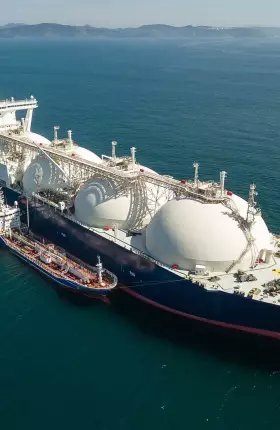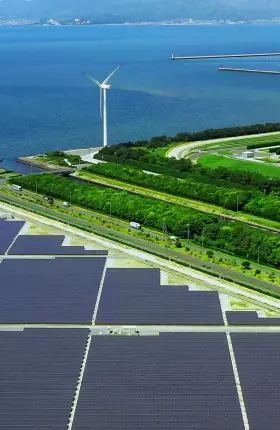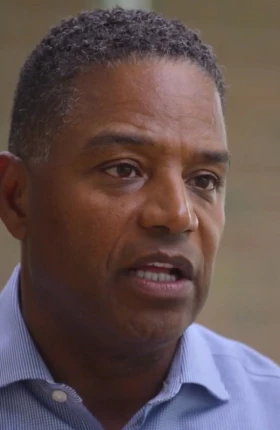データセンター産業が急速に拡大する一方で、電力、サプライチェーン、サステナビリティの課題がその成長を脅かしています。企業はいかにして障害を乗り越え、高まり続ける計算処理能力へのニーズに対応することができるのか、その方法を考察します。
Featured Insights
日本語コンテンツ

Article
2024年11月8日
不確実性の高い時代、企業リーダーにとって、世界的な潮流を読み取ることは自社の戦略の方向性を定めるうえで欠かせません。本書は、今後10年先の事業環境を見据え、2025年時点で優先的に検討すべきとBCGが考える経営上の重要論点を提示しています。

Article
2022年6月3日
膨大なデータから適切な行動を導き出すAIは、企業の温暖化ガス排出量の削減とコスト削減の両方を実現できる可能性があります。本稿では、サステナビリティへの取り組みにおいて、企業がAIのメリットを最大限に得るための3つのアプローチを提示します。

Article
2021年6月30日
気候変動対策イノベーションに取り組む企業は、複数のアプローチを探るとともに、投資家や政府、研究機関を含むエコシステムを活用することが求められます。
C-Suite Agenda

Report
2024年9月3日
Companies have a major opportunity to move from providing clean energy solutions that customers think they should buy to creating compelling products and services that customers will want to buy.

Article
2023年9月6日
Achieving net zero will require driving an energy transition with unprecedented speed. That transition promises to have far-reaching implications.

Slideshow
2024年9月24日
To prepare for tomorrow’s global energy system, players need to understand how power market dynamics are evolving today.
Video
2024年10月17日
Exelon’s Calvin Butler on Leading the Energy Transition
Appointing a leadership team is often one of the first challenges facing a CEO. And it’s important strategically, culturally, and operationally. In this episode of CEO Moments of Truth, Exelon’s Calvin Butler shares his thoughts about choosing the right people to help lead the firm through a period of intense change. This includes finding the people who will step up during tough times.
Cost, Resilience, and Value Creation

Report
2025年2月19日
Electricity grid companies are embarking on a once-in-a-generation task to build the infrastructure needed to provide society with clean, secure, and affordable energy.

Article
2025年4月1日
Some refiners have already moved aggressively and produced big savings. Others have been slower to address inefficiencies.

Article
2024年12月3日
Discover insights on energy trading strategies, market dynamics, and capabilities driving Asia-Pacific utilities to navigate change and emerge as global trading leaders.

Slideshow
2024年6月20日
Companies with the highest shareholder returns effectively managed capital allocation tradeoffs between reinvestment decisions, shareholder payouts, and balance sheet improvements.
Subscribe to our Energy E-Alert.
Innovation and Technology

Article
2025年1月20日
データセンター産業が急速に拡大する一方で、電力、サプライチェーン、サステナビリティの課題がその成長を脅かしています。企業はいかにして障害を乗り越え、高まり続ける計算処理能力へのニーズに対応することができるのか、その方法を考察します。

Article
2024年12月2日
With AI and GenAI applications poised to revolutionize the oil and gas industry, companies must develop the capabilities to quickly and flexibly adopt these new technologies.

Article
2024年11月8日
AI development is fueling a surge in energy demand, threatening net zero commitments. By working together, CEOs across industries can keep both transformations on track.

Article
2024年9月19日
Four major barriers stand between emerging climate technologies and adoption at scale. Here’s how earlier pioneering technologies—wind, CCGT, renewables, LNG, and solar—overcame them.
The Future of Low Carbon Solutions

Article
2025年2月20日
Oil and gas companies have a major opportunity to build low-carbon businesses. BCG research finds that they’re developing smart strategies to overcome challenges and lead the energy transition.

Article
2024年6月24日
BCG’s recent report outlines five ways to encourage removal of residual CO2 emissions, a critical factor in achieving global targets to curtail climate impacts.

Article
2024年7月26日
As a climate mitigation tool, recycling captured carbon—rather than storing it—is attracting growing interest. But how viable is it?

Article
2023年9月28日
These novel approaches accelerate the timelines of large projects while reducing costs and risks.
Industry Solutions
Video
2025年1月29日
AI Is Pulling the Technology and Energy Sectors Closer Together
As AI investments soar, so do energy demands. BCG’s Vaishali Rastogi and Pattabi Seshadri discuss the deepening relationship between the technology and energy sectors.

Report
2024年7月4日
Facing a perfect storm, the offshore wind industry must pivot to efficient O&M. PEAK Wind and BCG reveal seven key indicators to future-proof the industry’s success through O&M.

Article
2024年4月23日
Successful developers and investors take into account market differences. But they also rely on five factors that hold true across the region.

Update
2024年7月10日
These are some of the key signposts to look for when considering different scenarios for future oil demand.
Expert Interviews

Article
2024年1月31日
Green hydrogen will radically change how we power the planet–and the Nordics are frontrunners.
Video
2024年9月12日
Transforming an Energy Retailer
Discover how Ergon Energy Retail, an Australian utility, is transforming its business to provide sustainable and dependable energy.
Video
2023年10月27日
Mike Boots, executive vice president of Breakthrough Energy, discusses the importance of supporting climate tech companies through every stage of the innovation cycle.
Video
2024年5月6日
The Danish startup, a leading biomethane producer, employs an innovative energy-cluster concept to meet local needs—and is planning a global expansion.










